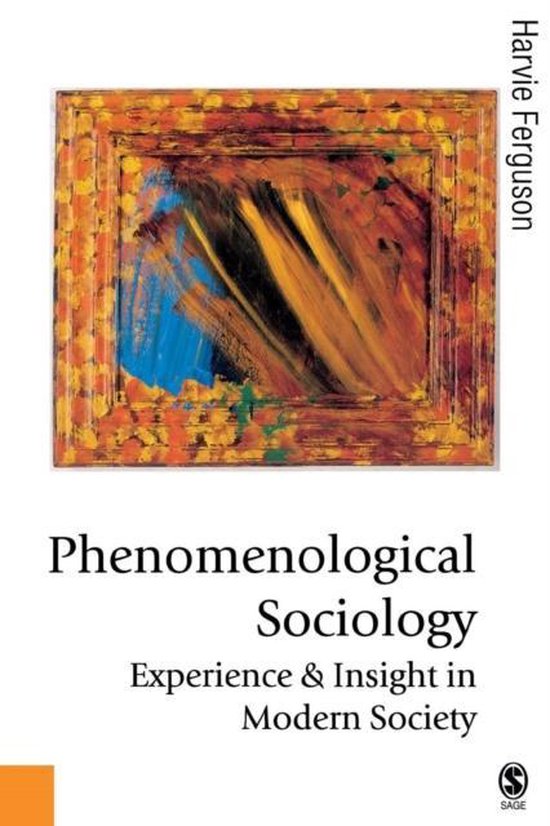
Phenomenological Sociology
Contemporary society constitutes a different form of modernity and Ferguson′s innovative and thoughtful analysis calling for a return to phenomenology demonstrates that a relatively neglected perspective within contemporary sociological thought continues to provide significant insights into modern experiences′
- Barry Smart, Portsmouth University
This may very well be the most thorough and authoritative analysis of phenomenological sociology ever achieved."
- W.P. Nye , Hollins University
What is phenomenological sociology? Why is it significant? This innovative and thought-provoking book argues that phenomenology was the most significant, wide-ranging and influential philosophy to emerge in the twentieth century.
The social character of phenomenology is explored in its relation to the concern in twentieth century sociology with questions of modern experience. Phenomenology and sociology come together as ′ethnographies of the present′. As such, they break free of the self-imposed limitations of each to establish a new, critical understanding of contemporary life. By reading phenomenology sociologically and sociology phenomenologically, this book reconstructs a phenomenological sociology of modern experience.
Erudite and assured, this book opens up a series of new questions for contemporary social theory that theorists and students of theory can ill-afford to ignore. The text contains a treasure trove of insights and propositions that will stimulate debate and research in both sociology and philosophy.
| Auteur | | Harvie Ferguson |
| Taal | | Engels |
| Type | | Hardcover |
| Categorie | | Mens & Maatschappij |





